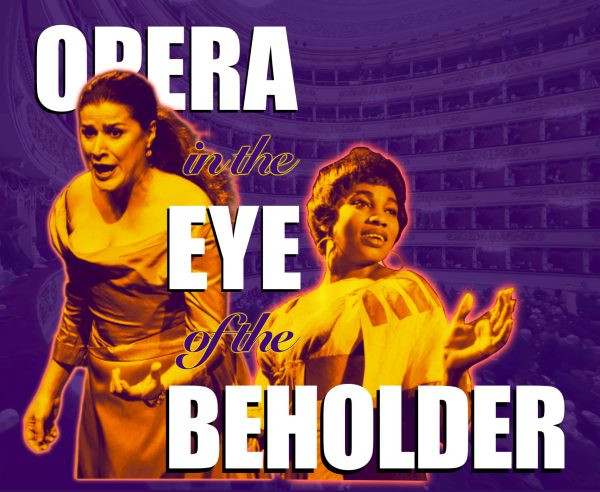Double Sided Thrillers
From tackling issues of race and social class to poverty and mental health, directors reveal deeper societal messages within recent movies such as “Joker,” “Us “and “Parasite. ”

The year draws to an end with a plethora of visually captivating movies that illuminate a variety of social themes from societal conformity to darkness within human nature. These movies often speak a truth about current day society, becoming not simply a source of entertainment for viewers, but also a method for directors to share their opinions on current issues around the world.
Us, Jordan Peele
After director Jordan Peele’s success in the film “Get Out,” which won an Academy Award for Best Original Screenplay, he returns with another eye-opening thriller. “Us,” featuring Lupita Nyong’o, who plays the main protagonist Adelaide Wilson, follows her family on their trip to Santa Cruz which makes a turn for the worse when the “tethered” come out of hiding in the tunnels in which they’ve lived and start terrorizing families on the surface. In both movies, Peele shows how marginalized groups in society rebel against injustice for revenge.
Throwback scenes to Adelaide’s past show the audience a traumatic experience that occurred at the Santa Cruz beach when she was a little girl but doesn’t completely fill in the audience on the events that occurred at the beach. Only by the end of the movie does it reveal the twisted events that happened to Adelaide on the beach many years ago.
The introduction to the movie is a prolonged zoom-out of bunnies trapped in cages in an isolated futuristic white room. Later in the movie, it is revealed that the bunnies are their only food source. Critics believe that the bunnies symbolize the innocence that is consumed by the doppelgangers. Peele includes many other themes that are often missed but hold strong and powerful messages.
In the movie, the doppelgangers are also bound to the main characters, yet their brutality highlight another theme: all people have a dark, more sinister side to them that they cannot rid themselves of. This is further demonstrated when the doppelgangers rise up together and link themselves, strengthening the idea of violence and darkness that can easily accumulate and unite people, if one allows it to overcome their morality and humanity.
By highlighting the doppelgangers as not an inverse personality, but rather an innate part of each person, Peele brings up the terrifying idea that no matter what one does, it is hard to fully let go of their darker, more brutal side. This implies that if one is not careful, they may be turned to the hands of violence and evil.
Aside from addressing many uncomfortable themes of society and individuality, Peele creates a cinematic masterpiece. The periodically long silences create uncomfortable tension that leaves viewers wondering about the next jump scares or plot of the movie. The movie is aesthetically pleasing — the movie successfully brings together harsh light, deep shadows and unnatural colors to once again reinforce the tension as well as leave viewers captivated by the beauty on the screen.
Parasite, Bong Joon-Ho
Black comedy thriller “Parasite,” a South Korean film directed by Bong Joon-ho, tackles the same themes of poverty and the class divide present in “Us,” propelling it to one of the most popular international films of 2019.
The story of the Kim family begins with son Ki-woo telling his family about his new job. With the recommendation of a friend, Ki-woo poses as a university student and infiltrates the wealthy Park household as an English tutor. Seeking to attain higher-paying jobs, the Kim family engages in a series of schemes until the entire family is working for the Park family but pretending to be unrelated to each other. All too quickly, however, their tangled web of lies catches up to them, and it becomes clear that no amount of cunning will elevate them from their positions in poverty.
Paralleling the Kim family’s lower class with the cockroaches that scurry from the light into the shadows, their struggles juxtaposed with the Park family’s first world problems highlight the class differences in South Korea. This humorous film takes an unexpectedly dark turn as the Park family takes on their own “parasite” and both households crumble.
With each plot twist, small details and symbolism emerge as the audience observes both a physical and social difference in altitude: with the Parks living on a hill and the Kims deep down in a basement, it is clear that no matter what face the Kims try to put forward to the Parks, they will never be the same.
The film’s messages of classism and poverty paint the unfortunate truth of how the problems of those in poorer circumstances are more often swept under the rug while the rich live in the light. While the Kims are left to waste away in the shadows, unseen and unheard, the Parks are blissfully ignorant of the struggles that the poor have to experience until a very rude awakening.
“What makes ‘Parasite’s’ take on class warfare so special is how focused and straightforward it is while not coming off as sentimental or boring like many ground-deep movies do,” Paly junior Tim Hung said. Maintaining humor and shocking elements throughout, “Parasite” keeps audiences engrossed in the plot, while its obvious thematic statements are easily readable yet not flagrantly displayed. By means of all of its comedy and thrills, “Parasite” conveys on a deeply truthful and poignant story that resonates with critics and audiences worldwide. “I hope more movies like ‘Parasite’ come out that can shed light on our society in a widely appealing way,” Hung said.
Joker, Todd Phillips
After months of high anticipation, “Joker” was finally released in October, reinventing the tale of Gotham City’s villain in a tragic light. After coming to terms with a traumatic past, Joker transforms from simply a party clown to one more sinister villain, dedicated to overthrowing the unfairness of society.
Director Todd Phillips intentionally sets an unsettling dynamic to emphasize the tension and the spiraling mental control of the Joker, played by actor Joaquin Phoenix. Matched with Phoenix’s uncanny ability to mirror the drama and spontaneity of the Joker’s persona, the movie truly is a masterpiece that sheds new light on the character’s background and evolution.
The movie follows Arthur Fleck, who would later call himself the Joker, and his captivating performance as he breaks away from the isolation and pain he has experienced throughout his life. Many enjoyed the movie, as it included more background about the Joker’s evolution in comparison to other movies featuring the Joker, like the Batman series, which only portrayed the Joker as the antagonist who committed crimes without justification. Living in the rundown streets of New York, Fleck learns how to stand up for himself against adversity. Exposing deep family secrets and lies, Fleck’s persona shifts from one that was once was fostered by his mother to an artistic, creative and independent individual.
Some, however, found that the movie was too dark. “While it was interesting to see a new take on the Joker films, I did not enjoy it because of the violence and the way it portrayed mental health,” Mountain View High School junior Arushi Singh said. A recent interview on Jimmy Kimmel’s “Saturday Night Live” brought to attention the extreme amount of weight that Phoenix lost for the movie. Certain scenes in the movie show close shots of Phoenix’s shockingly skinny body. After this interview, many voiced their opinion on the unhealthy way that he was forced to lose weight for the movie.
Phoenix was not the only actor cast as Joker who underwent substantial mental and physical effort in order to transform into the character. Heath Ledger, who played the Joker character in previous films passed away at age 28 after filming “The Dark Knight,” the 2008 movie in the Batman series. It was concluded that Ledger may have died from an intentional drug overdose. Many speculate that his death was partially a result of the level of emotional immersion Ledger had with his character, who suffered mental turmoil.

“Joker” speaks the tragic story of a character crushed for years under society’s rules due to his differences. As a result, he rises up and throws the city into anarchy. The movie is marked by the motif of inequality — through the press, comedy shows and ideas on mental illness. It highlights a truth that in society, those who are suppressed by societal rules may turn to violence to reach retribution.
With the recent mass shootings over the past couple of years, many hesitated before its release, fearing it would motivate and empower those who felt marginalized to act out in response to the movie. Many have a love-hate reaction with the movie and its strong messages of embracing anarchy as a means to escape the harsh realities of life.
“Honestly, with messages related to mental health and mass killings, I did not see any positive messages,” Singh said. “I guess it was trying to spread the message of how the common, underrepresented man that is ignored by society should speak up against injustice.”
The Final Word
sespite following very different genres, “Joker,” “Us” and “Parasite” tackle similar societal issues through commentary. Touching serious themes of mental health and the class divide, all three films comment on the marginalization of people based on disability, race or social standing. Especially in today’s social climate, the significance of pointing out the divisions between groups through the widespread medium of film sends a strong message to audiences. Human nature makes many people quick to call out the “other” and be afraid of anything they cannot understand. Modern efforts in social activism have sought to smooth out this issue, but complicated sentiments arise when differences are brushed over rather than celebrated.
“Film has the ability to get marginalized voices out there and give us a way to look back at our history and reflect on it,” Hung said. These themes resonate deeply with wide audiences because of the ease of access to film, especially due to the adoption and increased popularity of streaming platforms. Film has the uncanny ability to both show and tell a story so viewers can interpret layers upon layers of meaning despite not necessarily having an extensive education in film analysis. Because of this, film is a powerful force that can bring attention to significant issues that we have unwittingly allowed to plague our society today. Providing audiences with an outsider perspective to a world behind a screen, movies provoke deep introspection and hold up mirrors to our own world.
Like many media influencers, those involved in film use their public platform to address important issues, which usually spread positive conversation. With actors using their celebrity status to call attention to issues that matter, viewers around the country can be included in the conversation surrounding these controversial topics. As film continues to evolve and tackle new societal matters, it is clearly a powerful platform to promote global conversations among audiences all over the world.

2019-2020 - Staff Writer
2020-2021 - Managing Editor
Hear more about me!








